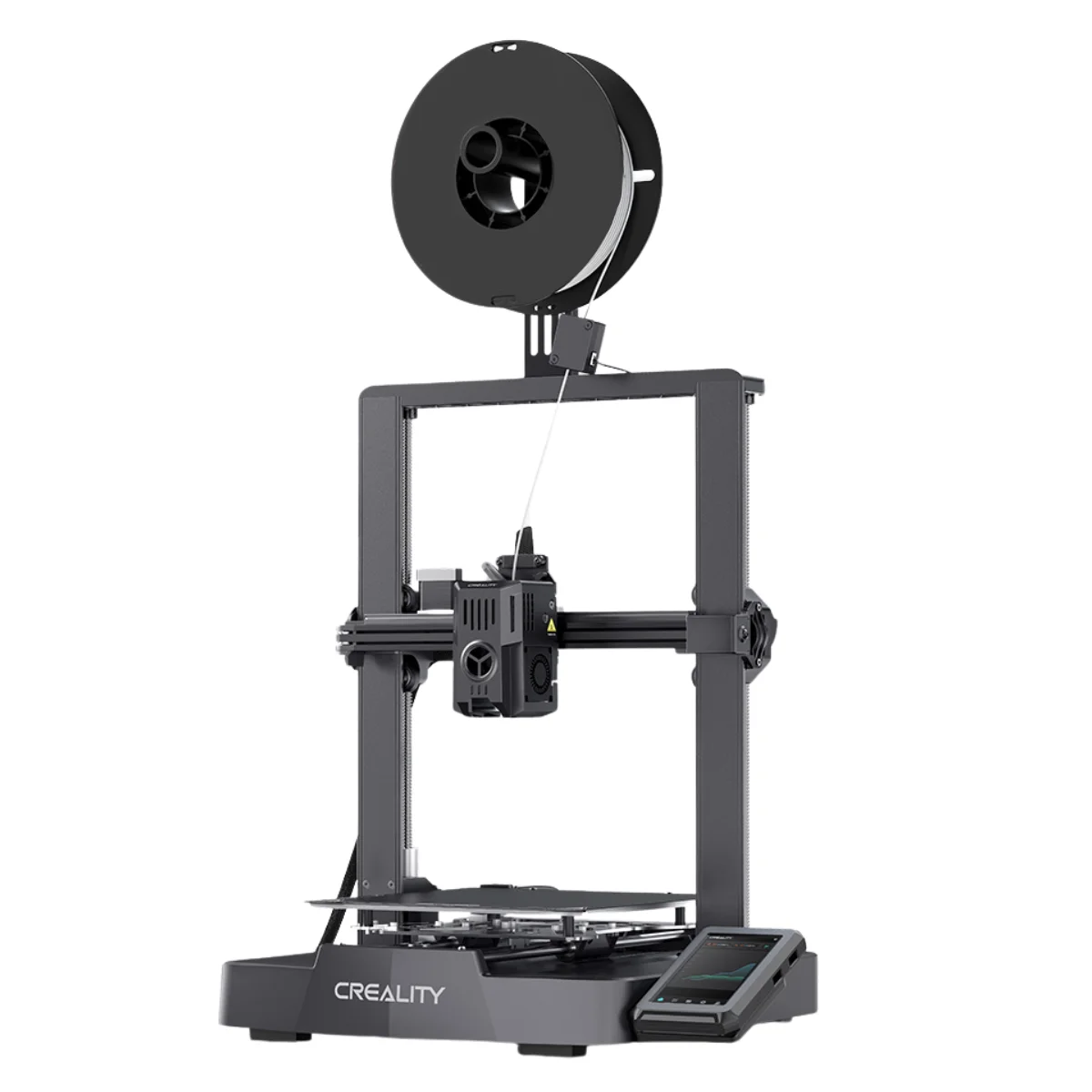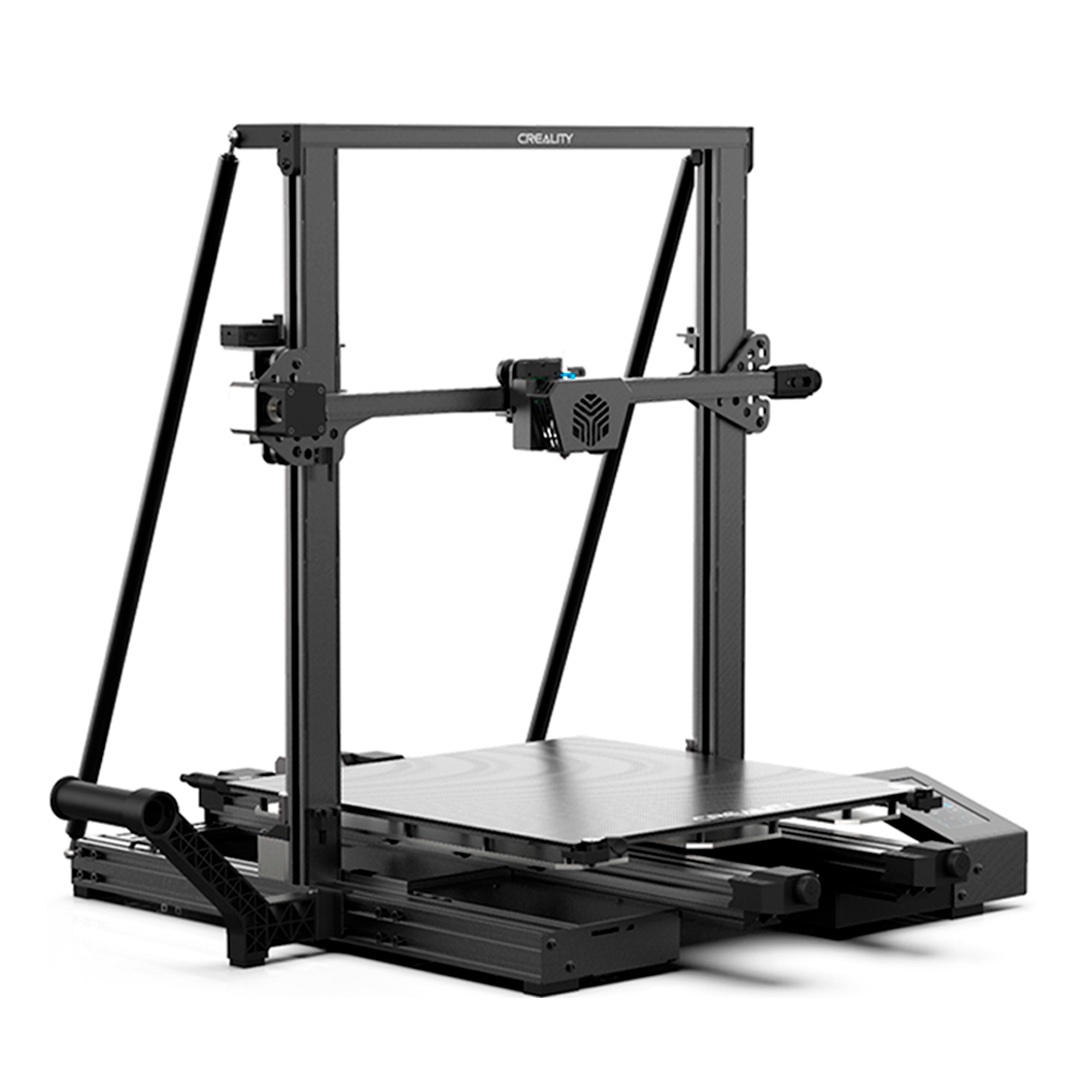Compare Ender 3 V3 KE vs CR 6 Max
Comparison between the best 3D printers
Choose the best 3D printer at the best price. The cheapest 3D printers are here.
Buy a 3D printer here with 3D Fila.
 |
 |
|
| Model | Ender 3 V3 KE[BUY Ender 3 V3 KE] |
CR 6 Max |
| Printing Material | Filament | Filament |
| Buy Filament for Creality Ender 3 V3 KE | Buy Filament forCreality 3D CR 6 Max | |
| Estimated price | $279,00 | $700,00 |
| Manufacturer | Creality | Creality 3D |
| Release Year | 2023 | 2021 |
| Print Volume [mm] | 220x220x240 | 400x400x400 |
| Printer Size [mm] | 433x366x490 | 725x640x691 |
| Weight [kg] | 7,8 | 14 |
| Power Loss Recovery | YES | YES |
| Enclosed printer | NO | NO |
| Bed Leveling | Automatic | Automatic |
| Filament End Sensor | YES | YES |
| Bed type | Heated | Heated |
| Power supply system | Direct Drive | Bowden |
| Standard nozzle | 0,4 | 0,4 |
| Maximum Nozzle Temperature [°C] | 300 | 260 |
| Maximum Bed Temperature [°C] | 100 | 90 |
| Maximum printing speed [mm/s] | 500 | 100 |
| Filament holder | YES | YES |
| Camera for supervision | NO | NO |
| Recommended filaments | PLA, PETG e TPU (95A+), ASA | PLA, PETG |
| Recommended slicers | Creality Print, Cura 5.0 ou superior, Prusa Slicer, Orca | Cura, Simplify, Slic3r, IdeaMaker |
| Maximum Resolution [mm] | 0,1 | 0,1 |
| Processor | 32-bit Silenciosa | |
| Display | Touchscreen 4,3'' | Display touchscreen 4,3'' |
| Power Supply | 350 W | 110/220V / 500W |
| Connectivity | USB drive, LAN, Creality Cloud APP | SD / USB |
| Operating systems | Windows, Linux, Macbook | Windows, Mac, Linux |
| Date of registration in the system | 2024-03-06 | 2022-11-04 |
| Release date | 2023 | 2021 |
| Extra features | The Ender 3 V3 KE, an advancement in the Ender line, achieves print speeds of up to 500mm/s with its touchscreen and WiFi connectivity. Although it has a slightly smaller print area than the SE model, it makes up for it with superior print quality. Its robust design, high-quality components, and intuitive wireless control are appreciated, although Creality's mobile app lacks practicality and does not have a closed system. It stands out for its linear track on the X-axis for stability at high speeds and the hotend that supports up to 300°C, ideal for high-temperature filaments. | Crealitys CR-6 Max printer offers a large 400 x 400 x 400mm build area, perfect for larger projects without dividers. Its auto-leveling system and force sensor simplify setup. It has a 4.3-inch touchscreen and convenient features like a tool drawer and filament holder. Plus, its modular hotend, redesigned extruder, and silicon carbide-coated build plate improve print quality. |
| Support for multiple colors and materials (AMS and CFS) | NO | NO |
Notes * |
||
| Cost-benefit | 7 / 10 | 6 / 10 |
| Hardware | 2.8 / 10 | 2 / 10 |
| Tela | . | . |
| Print volume | 3 / 10 | 4 / 10 |
| Performance | 4 / 10 | 1 / 10 |
| [BUY Ender 3 V3 KE] |
Conclusion |
| In comparing the Creality Ender 3 V3 KE and the CR-6 Max, it becomes clear that both printers serve different user needs and priorities, but the Ender 3 V3 KE offers a superior cost-benefit ratio and performance for hobbyists and small-scale users. The Ender 3 V3 KE, being significantly more affordable, delivers impressive print speeds of up to 500mm/s and supports high-temperature filaments, making it highly versatile for various projects. Its compact print volume is adequate for many users, and the presence of features like a direct drive system and power loss recovery enhances its usability. The intuitive user interface and wireless control through Creality's application, despite its limitations, contribute positively to the user experience. On the other hand, the CR-6 Max, while providing a robust build volume that's ideal for larger projects, comes at a much higher price point with performance metrics that do not favorably compare to the Ender 3 V3 KE. Although it includes thoughtful features like a modular hotend and improved print quality components, the overall cost-effectiveness and speed do not match the value offered by the Ender 3 V3 KE. Ultimately, for users who prioritize affordability, speed, and versatility in their 3D printing endeavors, the Ender 3 V3 KE stands as the better choice. Conversely, the CR-6 Max may appeal more to those who require larger print volumes and are willing to invest more for additional features, despite its shortcomings in performance relative to cost. Therefore, the decision should align with individual project needs and budget considerations. |

